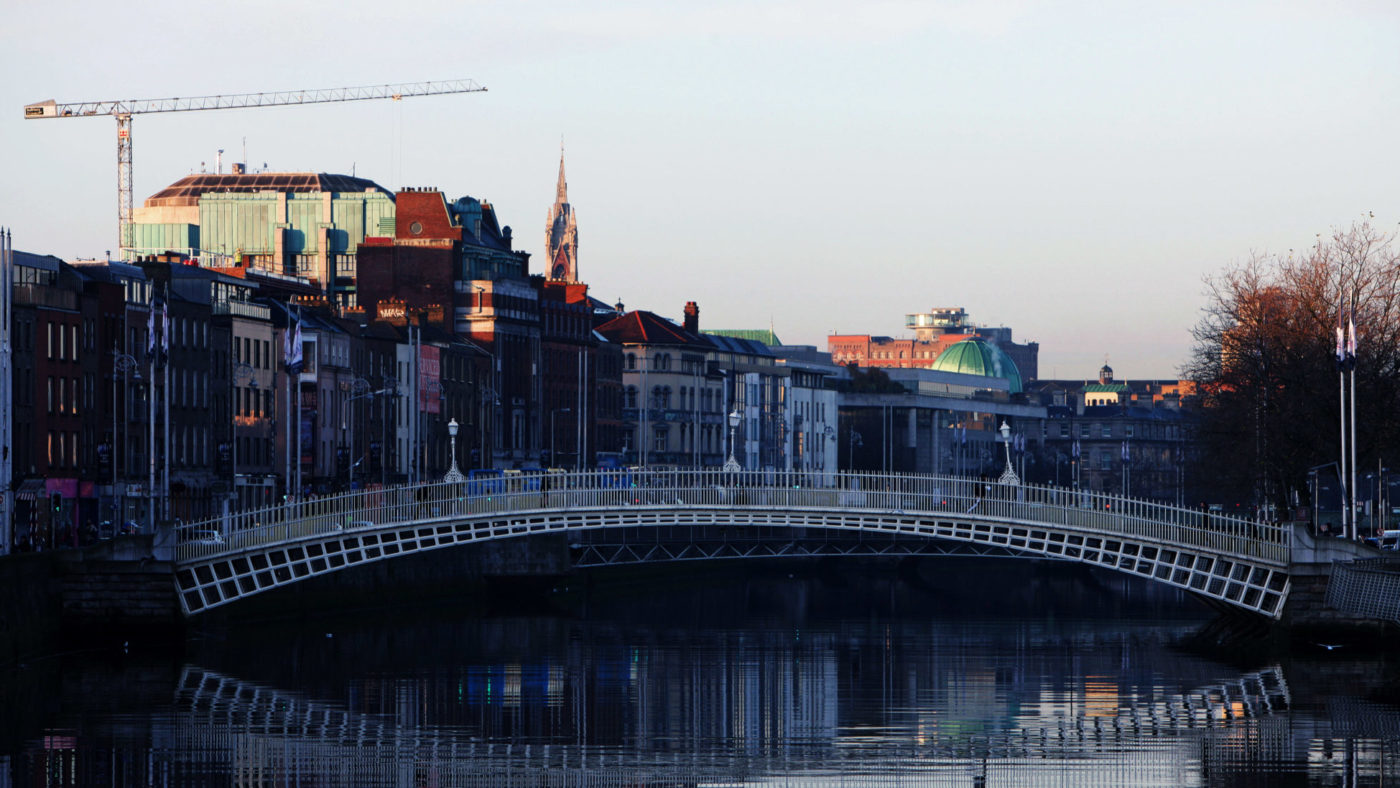The Irish Government is currently doing its utmost to subvert a meaningful Brexit by playing up the North-South Irish Border as a “problem”, in close cooperation with Michel Barnier and his EU Commission negotiating team — and behind the scenes with “Remainer” elements in the UK.
The best solution to this particular problem is that the UK should replace the relevant parts of its domestic legislation implementing the EU Single Market laws with new domestic legislation prohibiting carriage across the land border in Ireland of any goods which the EU would regard as illicit. Such a new UK law should be rigorously enforced by UK customs officers operating in Northern Ireland, in continuing co-operation with Irish customs officers as may be required.
The UK Parliament has already passed a new Act controlling the issue of haulage permits, and that or similar legislation could be used as part of the enforcement process to protect the EU Single Market from unwanted imports across any open land border in Ireland.
If the UK implements the meaningful Brexit envisaged in Mrs May’s Lancaster House speech of last year it is quite on the cards that public opinion in the Republic of Ireland will swing also towards leaving the EU over the next few years. Fear of that happening undoubtedly influences EU Commission attitudes in the current negotiations.
A change of Irish attitudes to the EU is inevitable if a real Brexit happens because EU membership would no longer be of significant benefit to the Irish State without the UK beside it as a fellow EU member.
For one thing if Brexit were to be followed by an “Irexit” the Irish land border would no longer be an EU one too. Anglo-Irish relations would again be a matter exclusively for the British and Irish Governments, as was the case from 1923 until both States joined the EC/EU. The Irish Border would no longer be a cause of problems with the EU, either economically or politically.
Secondly, leaving the EU following the UK’s departure would save the Republic money as it has become a net contributor to the EU Budget since 2014. This is a big change from the previous 40 years when Ireland was a major net recipient of EU funds, mainly through the EU’s Common Agricultural Policy. If the Republic stays in the EU its contributions will moreover have to increase significantly to help compensate for the loss of the UK’s EU contributions following Brexit. This removes what hitherto has been the principal basis of Irish Europhilia, official and unofficial — namely cash.
The Republic would get back control of its sea-fisheries if it followed the UK out of the EU. The value of foreign fish-catches in Irish waters is a several-times multiple of whatever moneys the Republic has received from the EU over the years. That also would benefit Ireland significantly.
As regards foreign trade and investment, the Republic sends 61 per cent by value of its goods exports and 66% of its services exports to countries that are outside the continental EU 26, mostly English-speaking. It gets two-thirds of its imports from outside the EU26. The UK is the most important single-country market for its indigenous firms and the USA for its foreign-owned ones. Free trade between the UK, Ireland, the continental EU and the rest of the world therefore makes every sense, with both the UK and Ireland being freed of the burden of unsuitable EU regulations.
Dublin is closer economically and culturally to Boston than Berlin. Ireland, North and South, is naturally part of the English-speaking world. A Britain that is half-in and half-out of the EU would not be Ireland’s interests. If the UK takes back control of its law-making and public policies, it would make every sense for the Republic to do the same.
The security implications of the Republic of Ireland staying in the EU when the UK leaves have not been publicly discussed in either country. Brussels has signalled that a security and military union is a preferred next stage of EU integration. If the Republic remains in the EU when the UK leaves it means that it will become part of an EU military bloc effectively dominated by Germany. If Ireland should be reunited at some future date under the terms of the Good Friday Agreement it would mean the whole island of Ireland on Britain’s Western approaches would come effectively under German hegemony, with France hanging on to Germany’s coat-tails. That can hardly be in the security interests of Britain.
Britain leaving the EU to take back control of its laws and policies and resume its global vocation as a maritime country makes sense only if Brexit is a real and not a simulated departure. A UK that had really left the EU, including its single market, customs union and the jurisdiction of its EU Court of Justice, would undoubtedly become a pole of attraction for the Republic of Ireland. That is why a real Brexit would be in Ireland’s interest as well as Britain’s.


